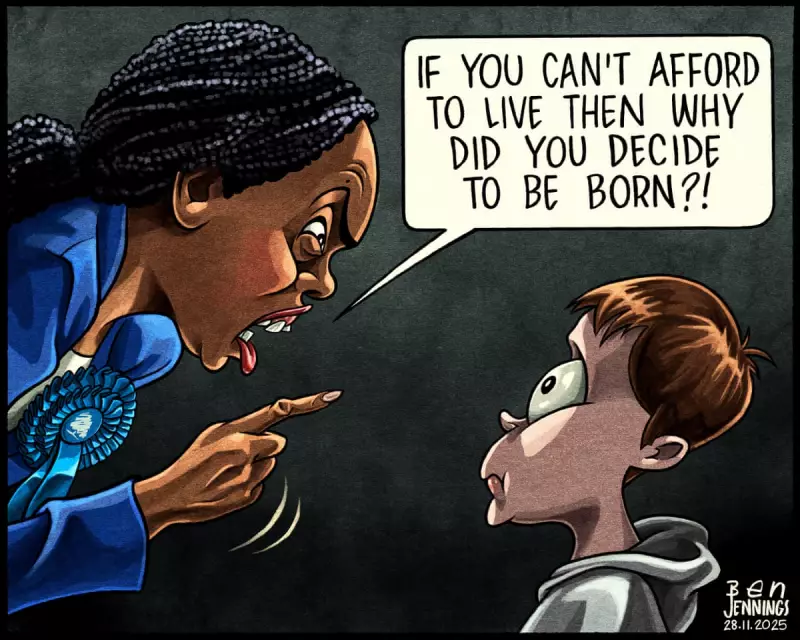
Business Secretary Kemi Badenoch has ignited fresh political controversy by publicly defending the government's two-child benefit cap, drawing sharp criticism from opposition parties and child poverty campaigners.
The Policy Under Fire
The controversial policy, which restricts child tax credit and universal credit to the first two children in most families, has become a focal point in Britain's welfare debate. Badenoch's recent comments supporting the cap have thrown the issue back into the political spotlight, with critics arguing the measure disproportionately affects vulnerable families.
Political cartoonist Ben Jennings captured the mounting tension in his latest work for The Guardian, portraying Badenoch's stance against a backdrop of growing public concern about child poverty rates. The visual commentary underscores the deepening divide within Westminster over social welfare policies.
Growing Opposition and Defence
Opposition parties have seized on Badenoch's position, with Labour and Liberal Democrat MPs calling for the cap's abolition. They argue that the policy has pushed approximately 400,000 children into poverty since its introduction in 2017, according to research from various child welfare organisations.
However, government ministers maintain that the policy ensures fairness in the benefits system and encourages responsible family planning. Badenoch and other Conservative MPs argue that taxpayer-funded support should reflect the choices families make, mirroring the financial decisions faced by those not receiving benefits.
Broader Political Implications
The debate over the two-child cap comes at a sensitive political moment, with economic pressures mounting and general elections approaching. The policy has become symbolic of broader ideological differences between the major parties regarding the welfare state's role and scope.
Anti-poverty charities have intensified their campaigns against the measure, presenting evidence of its impact on family wellbeing and child development. Meanwhile, government supporters highlight falling unemployment figures and point to other forms of support available to low-income families.
As the political cartoon by Jennings suggests, the controversy shows no signs of abating, with Badenoch emerging as a prominent defender of a policy that continues to generate heated discussion across the political spectrum.





